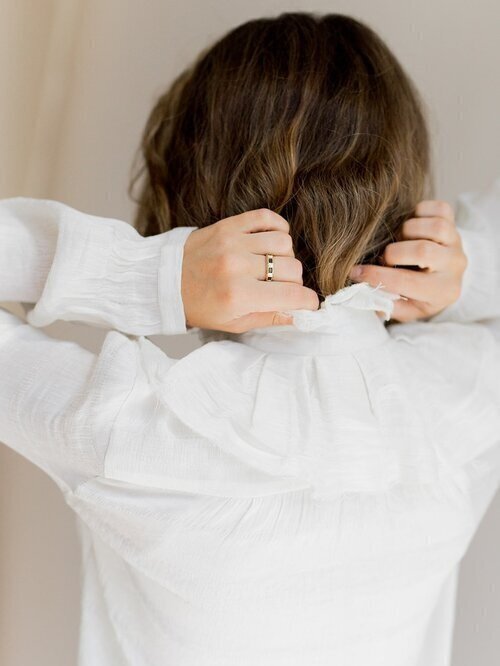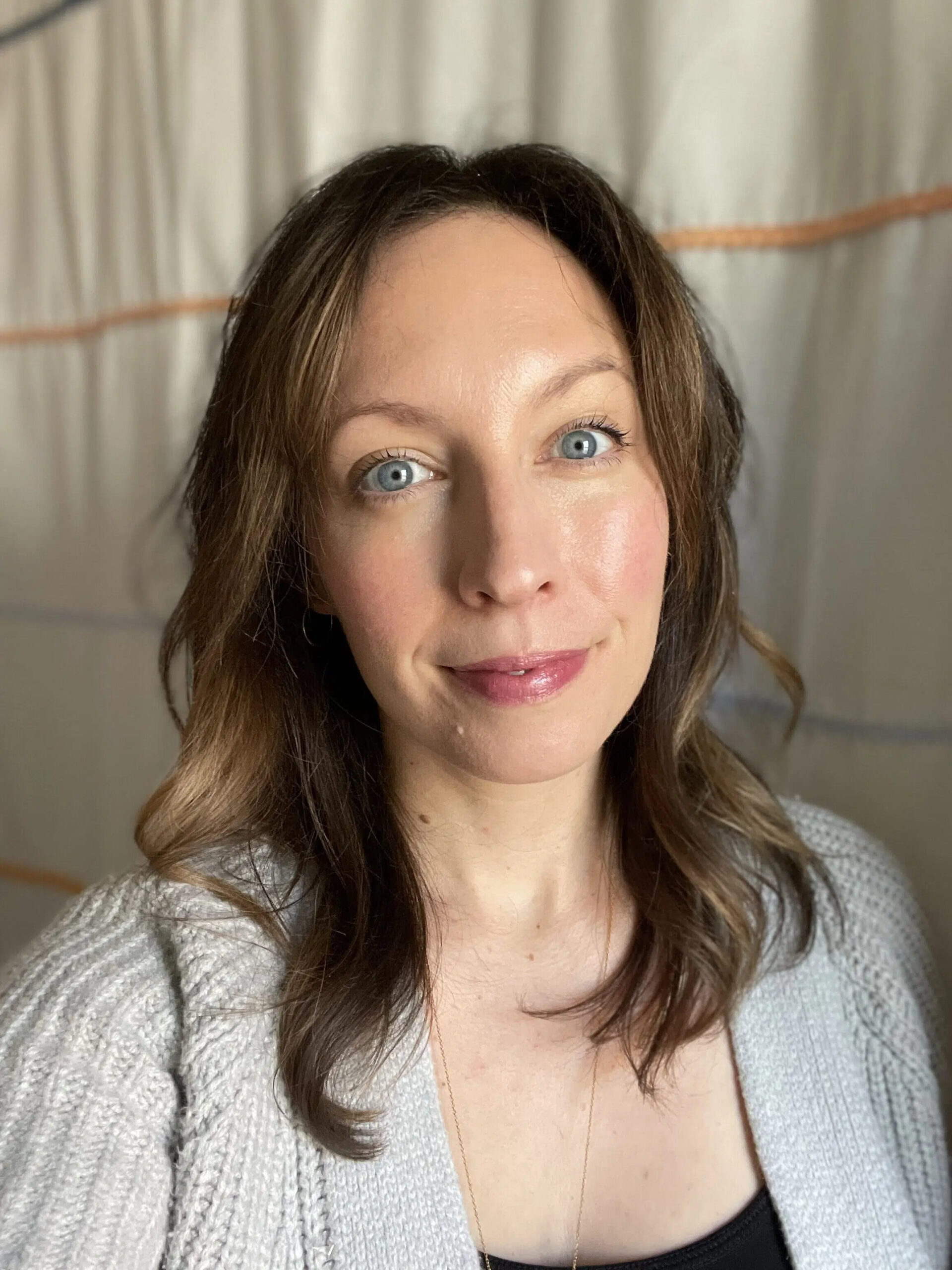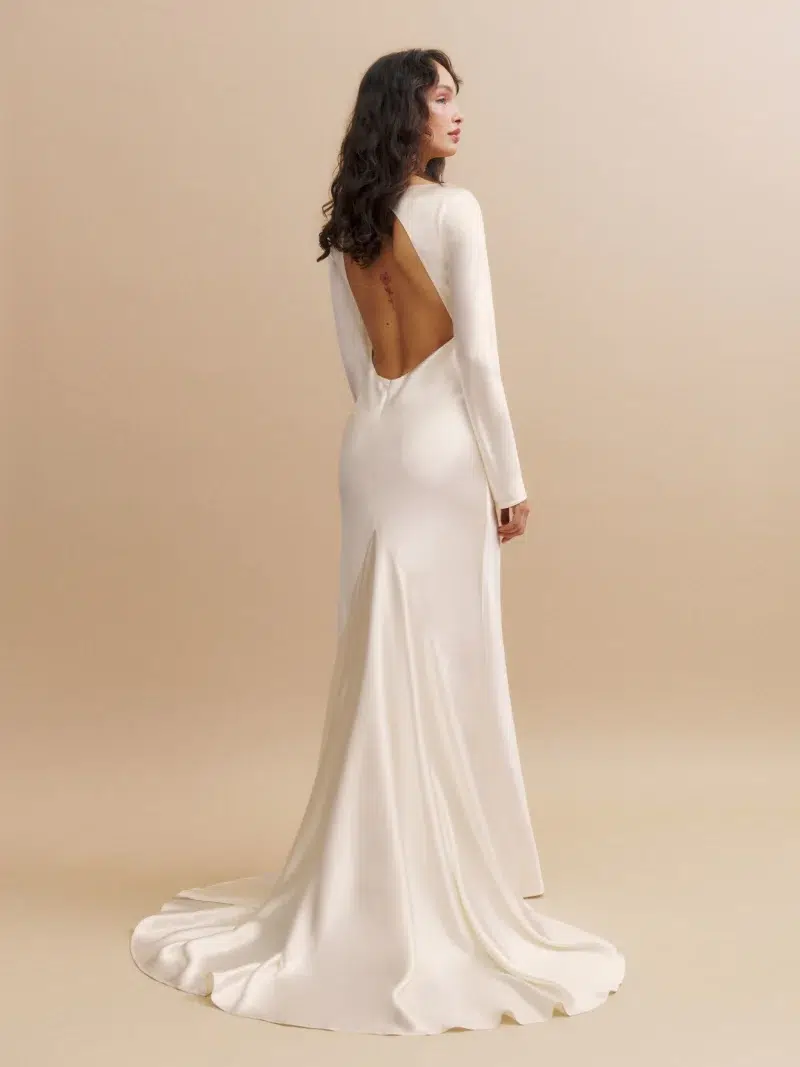
How Wedding Planning Taught Me To Focus On My Vision
As a kid, I dreamt of a time when I’d get to plan my wedding. I hosted elaborate ceremonies for my Barbies and I often paged through bridal magazines with my sister, talking about the shoes and the gowns we’d wear on our big days. By age thirteen, I had a Pinterest board called “Dream Wedding.” It was obvious to me exactly what my wedding would look like, and I thought my vision was set.
“I still wanted a wedding, and I still wanted to marry my high school sweetheart, but my vision for what that looked like had changed.”
Even when I met my partner in high school, I was sure that someday we’d have a big beautiful wedding. I’d change my name, wear a huge gown, eat lots of food, and have a fancy cake. But as we grew up, went off to different colleges, aged, and became more aware of the world — staying in love all along the way — my view of our big day evolved. I still wanted a wedding, and I still wanted to marry my high school sweetheart, but my vision for what that looked like had changed.
I decided I didn’t want to change my last name — why should I have to change my entire identity just because I really love this guy? Maybe I didn’t even want to wear a dress. And what if I didn’t have a traditional ceremony? Does a feminist wedding that doesn’t uphold patriarchal values exist?
We had lots of these conversations before getting engaged, thinking about the big-concept stuff of marriage and weddings, but never really scratching the surface of the details. We got engaged about six months ago and, honestly, I’m still not sweating the small stuff.
“What I do know is that I don’t want wedding planning to become my identity, or the only thing I’m focused on.”
What I do know is that I don’t want wedding planning to become my identity, or the only thing I’m focused on. Being a bride is just a small part of who I am — even though the wedding industrial complex would have me believe it’s my identity. This role of bride comes with a lot of baggage, other people’s opinions, and lots of marketing dollars directed at me. And I often find myself having to remind folks that I’m not the only person in this partnership.
So as we start to plan our wedding, we’re still engaged on big picture questions like: What do we want this event to feel like? And we’re doing it as a pair.
“It’s important right away, before you even get into any of the details, to decide how important the event is to you,” says Amy Shack Egan, founder and CEO of Modern Rebel Co., an unconventional wedding planning company. “It opens up a really beautiful conversation between both partners.”
We’ve talked about things like: Did we even want to have a ceremony? What about a courthouse wedding? How many people should we invite? Will we have readings? How can we make the wedding sustainable? What about money? How could we tell our family we’d rather have money to travel than a bunch of presents?
“We share a love for food, music, and just generally having fun with the people we love, so it’s no surprise these have become our wedding planning values.”
Eventually, we established that if nothing else, as long as our wedding had good music, good food, and good company, we’d be happy. We share a love for food, music, and just generally having fun with the people we love, so it’s no surprise these have become our wedding planning values. I’m really glad we’ve established these standards for our wedding. It has given us a vision to go back to throughout this process, and they’ve been our guiding principles when we make decisions, especially when the outside noise comes.
“Wedding planning is an interesting opportunity for couples, because usually it’s the first time that you’re managing a budget of this scale, you’re managing a project of this scale, you’re managing something where both sides of your families have opinions at this kind of scale,” Shack Egan says.
“Something I’d heard about but didn’t really understand until I was in the midst of wedding planning is: Everyone will have an opinion.”
Something I’d heard about but didn’t really understand until I was in the midst of wedding planning is: Everyone will have an opinion. On everything. “A live band is best.” We want a DJ, though! “Make sure you have food options that all people will enjoy.” What if we just had food we like instead of worrying about picky eaters? “You have to go dress shopping, you can’t just order one online.” But I don’t know if I even want to wear a dress. “Are you having a unity ceremony?” We weren’t planning on it! “You should start growing your hair out now for the wedding.” If I feel more comfortable with short hair, why would I change it for my wedding?
It can be hard to juggle all the opinions, choices, and decisions in front of you. Family, friends, targeted ads, societal expectations, traditions, and wedding vendors all have ideas for what you need. The targeted ads are endless, my social media algorithm spits out wedding content left and right. Once, my partner reached out to a wedding vendor, copying me on the email just to keep me in the loop. But the vendor addressed their response to me, not my partner. Because I’m the bride.
“We try to come back to the vision we established together: Good music, good food, good company.”
There have been moments when we’ve felt really overwhelmed by it all, but we try to come back to the vision we established together: Good music, good food, good company. In the spirit of my thirteen-year-old self, I also created a mood board shortly after we got engaged with all our ideas for what we wanted the wedding to look like. Coming back to what we know we want has helped us tune out a lot of the outside noise and be able to stand up for what we want, instead of getting pulled into the marketing of the “must-haves” and the opinions of others.
“Honestly, you don’t need to see every single option to make a decision,” says Shack Egan. “Seeing everything that’s out there, it’s not helpful. Get a sprinkling of it, but don’t ask for opinions on everything, don’t go down the internet rabbit hole — really protect your peace in this process.”
We went to a wedding expo recently and were faced with literally hundreds of options. It was easy to get distracted and pulled in by the free samples and charismatic (and genuinely kind!) folks at all the booths. But we had to focus. We knew what we wanted, so we passed by booths that weren’t relevant to our vision. In the end, we spent most of our time going from caterer to caterer to find the right fit. Our conversations had given us the tools to remind each other of our shared end goal, and we were a perfect team that day.
“That’s what makes us happy, and we know how to party and have a good time.”
Protecting our peace and focusing on our priorities has been instrumental in keeping the vision for our wedding. Because at the end of the day, as long as we have a venue, food, and music, I know we’ll be just fine. That’s what makes us happy, and we know how to party and have a good time. Even if the outfits aren’t perfect, the decorations never arrive, and the ceremony goes sideways, we’ll be happy knowing that we celebrated our love our way.
Brianna Schubert is a writer and editor living in Milwaukee, Wisconsin. When she’s not writing about books, lifestyle, and culture, you can find her cooking up a new recipe, reading and recommending books, or finding hidden gems at vintage and thrift stores. Say hi on Instagram!




